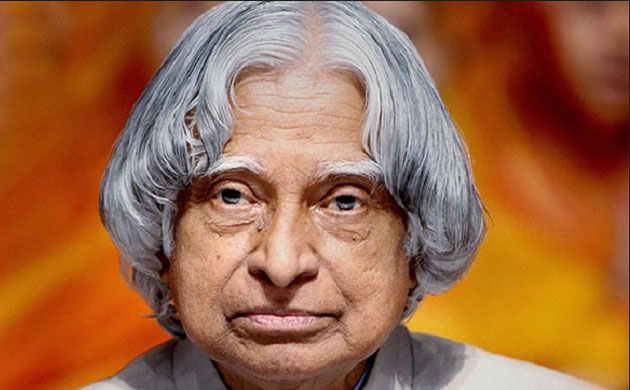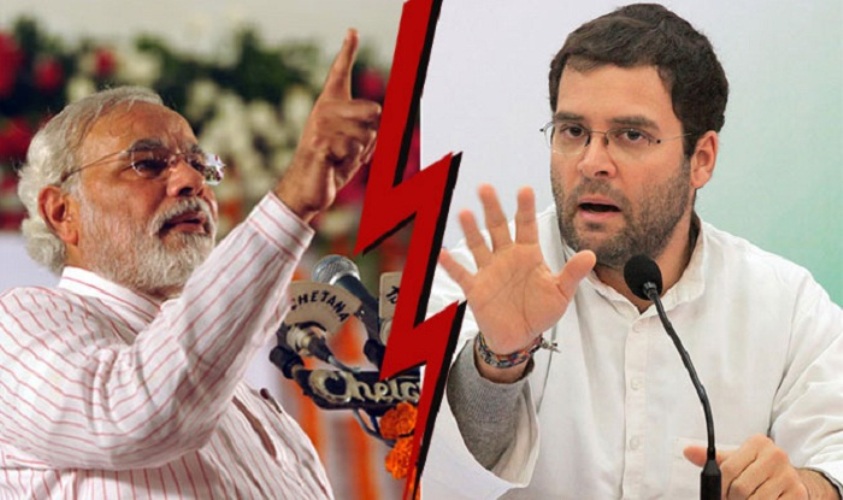Fed up with the taunts of the BJP that he was a ‘weak’ prime minister before his government fell, Inder Kumar Gujral decided that he would tell Indians and the world how much he preferred Indian security.
He decided to confer Bharat Ratna on APJ Abdul Kalam, known as ‘Missile Man’. Earlier in 1952, no scientist other than CV Raman was considered worthy of this award.
On March 1, 1998, Kalam was nervous at the Bharat Ratna award distribution ceremony at Rashtrapati Bhavan and was seen repeatedly touching his blue stripe tie.
Kalam was irritated by such formal occasions where he had to wear clothes in which he would never find himself comfortable. He never liked wearing a suit. Even he always preferred to wear sports shoes instead of leather shoes.
After honoring the Bharat Ratna, Atal Bihari Vajpayee was one of the first to congratulate him.
Vajpayee’s first meeting with Kalam was in August 1980 when the then Prime Minister Indira Gandhi called him and Professor Satish Dhawan to meet the key MPs after the successful launch of SLV3.
When Kalam got a glimpse of this invitation, he got nervous and said to Dhawan, Sir, I have neither suit nor shoes. I have Ceruppu (Tamil word for sandal). Then Satish Dhawan smilingly told him, ‘Kalam you are already wearing a suit of success. To Reach This Point.
Vajpayee invited Kalam to become a minister
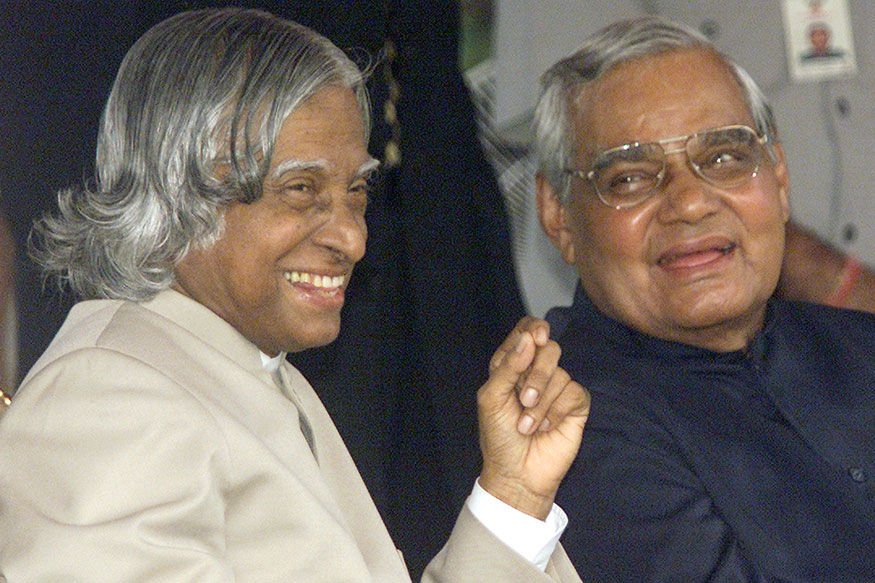
Famous journalist Raj Chengappa writes in his book ‘Weapons of Peace’, ‘When Indira Gandhi introduced Kalam to Atal Bihari Vajpayee in that meeting, he embraced Kalam instead of shaking hands with him. On seeing this, Indira Gandhi smiled mischievously and she took a pinch of Vajpayee and said, ‘Atalji but Kalam is Muslim.’ Vajpayee then replied, ‘Yes, but He is Indian and a great scientist’.
18 days later, when Vajpayee became the Prime Minister for the second time, he invited Kalam to join his cabinet. If Kalam had agreed to it, Vajpayee would have not only got a capable minister but also sent a message to the Muslims of India that he would not be ignored in the BJP government.
Kalam considered this proposal for a full day. The next day he met Vajpayee and very politely declined the post. He said that ‘the defense research and nuclear testing program is reaching its final stage. They can serve the country better by fulfilling their current responsibilities.
After the nuclear explosion in Pokhran two months later, it became clear why Kalam did not accept that post.
Vajpayee chose Kalam for the President Post

On June 10, 2002, APJ Abdul Kalam received a message from Dr. Kalanidhi, Vice-Chancellor of Anna University, that the Prime Minister’s Office was trying to contact him. That is why you immediately go to the Chancellor’s office so that you can talk to the Prime Minister. As soon as he was connected to the Prime Minister’s Office, Vajpayee came on the phone and said, ‘Kalam saheb India needs you as the President’. Kalam thanked Vajpayee and said that I need an hour to consider this offer. Vajpayee said, ‘You must take the time. But I want yes from you. Not no
By evening, NDA convenor George Fernandes, Parliamentary Affairs Minister Pramod Mahajan, Andhra Pradesh Chief Minister Chandrababu Naidu and Uttar Pradesh Chief Minister Mayawati held a joint press conference and announced Kalam’s candidature. When Dr. Kalam reached Delhi, Defense Minister George Fernandes welcomed him at the airport.
Kalam chose to stay at the DRDO Guest House in Asiad Village. On June 18, 2002, Kalam filed his nomination papers in the presence of Atal Bihari Vajpayee and his cabinet colleagues. While filling the form, Vajpayee joked with him that ‘you too are a virgin like me’, then Kalam replied amid laughter, ‘Prime Minister, I am not only a virgin but also a brahmachari.’
Story of becoming a Kalam suit
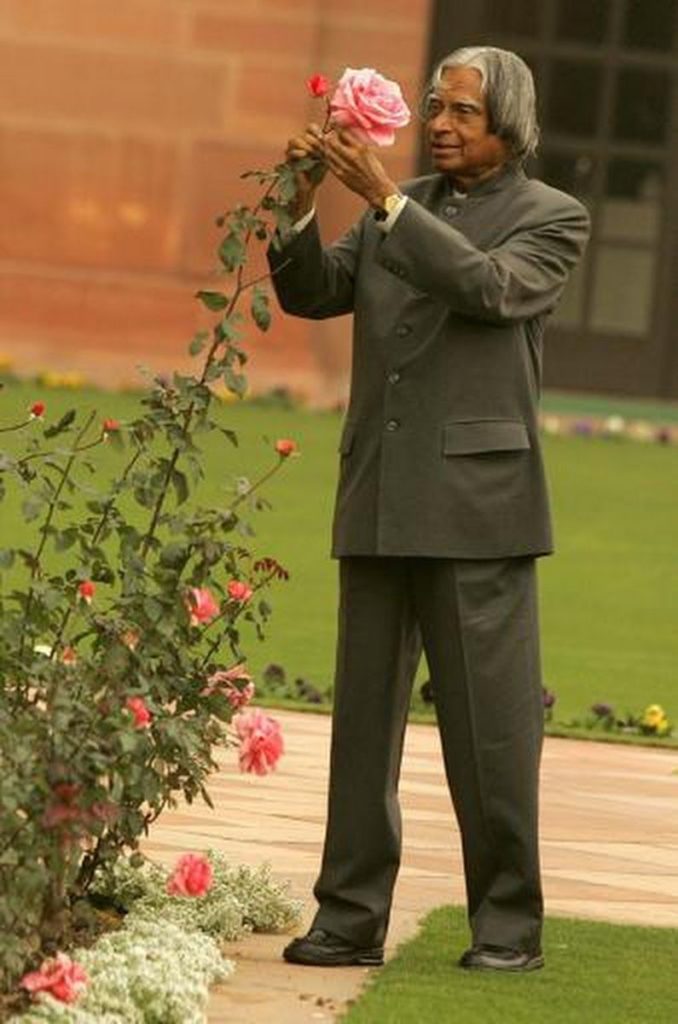
After Kalam became the President, the biggest problem came that what would he wear? For years, Kalam, who was wearing a blue shirt and sports shoe, could not wear it as the President. There was a tailor of Rashtrapati Bhavan who stitched suits of many previous presidents. One day, he also measured Dr. Kalam.
Kalam’s biographer and colleague Arun Tiwari writes in his book ‘APJ Abdul Kalam: a Life’, ‘A few days later, the tailor got four new bandhgala suits sewed for Kalam. In a few minutes, Kalam, who always dressed casually, changed his body. But Kalam himself was not happy with this. He told me, ‘I cannot breathe in this. Can any change be made in its cut? ‘
Troubled tailors kept thinking what to do. Kalam himself advised that you cut it a little from near the neck. After this, this cut of Kalam’s suit came to be called ‘Kalam Suit’.
The new president also hated wearing a tie. He also suffocated with a tie like a tight-necked suit. Once I saw him clearing his glasses with his tie. I told him that you should not do this. His answer was, the tie is a completely purposeless garment. At least I am using it a bit.
Kalam Used To Read Prayers Every Morning

Despite being a very busy president, Kalam would have taken some time out for himself. He was very fond of playing the Rudra Veena.
SM Khan, who was the press secretary of Dr. Kalam, told me, ‘He also loved to walk, that too at ten in the morning or four in the afternoon. He used to take his breakfast at ten-thirty in the morning. Therefore their lunch was delayed. Their lunch was at Three in the afternoon and dinner was often after 12 pm. Dr Kalam was a religious Muslim and used to offer prayers in the morning i.e. Fajr. I often saw him reading the Quran and the Gita. He used to read the book ‘Thirukkural’ in Swami Thiruvalluvar’s teachings in Tamil. He was a staunch vegetarian and had no connection with alcohol. Instructions were sent all over the country that they should be served plain vegetarian food wherever they stayed. He also did not like to be called His Excellency or ‘His Excellence’.
But in some circles this complaint was often heard that he had a ‘soft corner’ towards the Saffron camp. An attempt was also made to give the message from that camp that every Muslim in India should be like them and who does not meet this criteria, his conduct can be brought under question.
Some eyebrows were raised even after Kalam supported BJP’s demand for a uniform civil code.
A section of leftists and intellectuals went to Puttaparthi to meet Kalam’s Satya Sai Baba. His complaint was that a person advocating scientific thinking is presenting wrong examples to the people by doing so.
Kalam Cut A Check Of 3.5 Lakhs To Make His Family Stay In Rashtrapati Bhavan
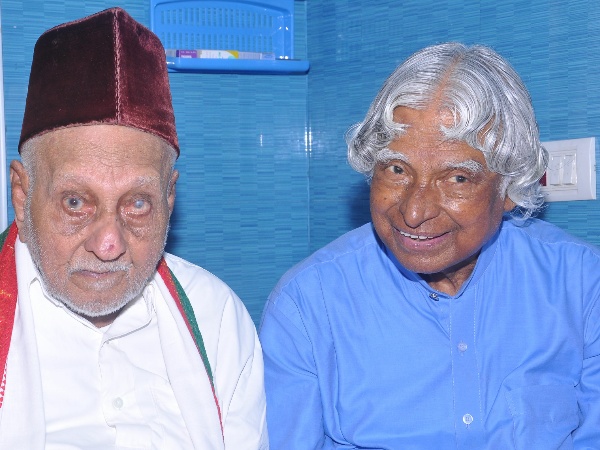
Dr. Kalam loved his elder brother APJ Muthu Maraikayar. But he never asked her to stay with him in Rashtrapati Bhavan.
His brother’s grandson Ghulam Moinuddin was working in Delhi when Kalam was the President of India. But he still lived in a rented room in Munirka.
In May 2006, Kalam invited around 52 people from his family to Delhi. These people stayed in Rashtrapati Bhavan for eight days.
PM Nair, who was Kalam’s secretary, told me, “Kalam paid the rent to stay in his Rashtrapati Bhavan from his pocket. Even a cup of tea was also accounted for. Those people also went to Ajmer Sharif in a bus, whose fare was paid by Kalam. After his departure, Kalam cut a check of three lakh fifty-two thousand rupees from his account and sent it to the Rashtrapati Bhavan office.
In December 2005, his elder brother APJ Muthu Maraikayar, his daughter Nazima and his grandson went to Mecca to perform Ghulam Haj. When the Indian Ambassador in Saudi Arabia came to know about this, he called the President and offered to provide all help to the family.
Kalam’s reply was, ‘I request you to allow my 90-year-old brother to perform Haj like a common pilgrim without any government arrangement.’
Gave iftar money to the orphanage
Nair told me another interesting anecdote. ‘Once in November 2002, Kalam called me and asked,’ Tell me why should we organize iftar banquet? Anyway, the invitees here are people eating and drinking. How much do you spend on iftar? A call was made to the hospitality department of Rashtrapati Bhavan. He told that iftar banquet costs roughly Rs 2.5 lakh. Kalam said, ‘Why can’t we give this money to the orphanage? You choose the orphanages and make sure that this money is not wasted.
Flour, lentils, blankets and sweaters were arranged from Rashtrapati Bhavan for an iftar amount and were distributed among the children of 28 orphanages. But this did not end here. Kalam called me again and when he and I were alone in the room, he said, ‘You have bought this stuff from the government money. My contribution in this is nothing. I am giving you a check of one lakh rupees. Use it in the same way as if you have made the money for Iftar. But don’t tell anyone that I have given these money. ”
Non-Political president
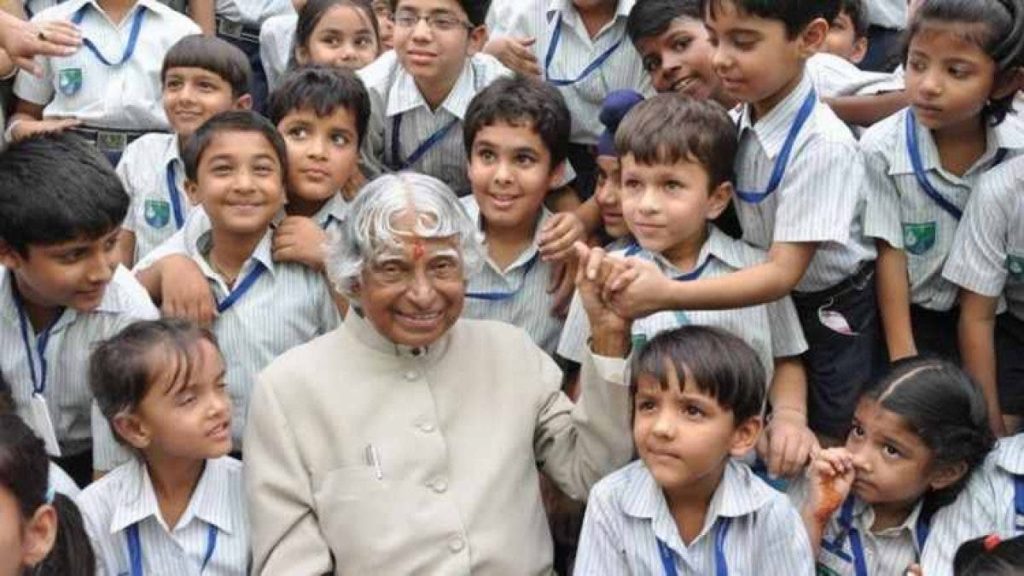
Kalam was perhaps the first non-political President of India. If his counterpart could be hired, it was Dr. Sarvepalli Radhakrishnan. But Radhakrishnan was also not completely non-political and had been India’s ambassador to the Soviet Union.
Kalam’s political inexperience was revealed when he approved imposition of President’s rule in Bihar on the midnight of 22 May, even when he was on a visit to Russia.
In the absence of any party’s majority in the Bihar Legislative Assembly elections, Governor Buta Singh recommended imposition of President’s rule in Bihar without exploring all options.
After a meeting the Union Cabinet immediately faxed him to Moscow for the President’s signature. Kalam signed on this recommendation at one clock in the night without any hesitation.
But after five months, the Supreme Court declared this order as unconstitutional, due to which the UPA government and Kalam himself were very much degraded.
Kalam himself mentioned in his book ‘A Journey Through the Challenges’ that he was so hurt by the Supreme Court’s decision that he had made up his mind to resign on this issue but Prime Minister Manmohan Singh did not tell him To convince that this will cause a tornado in the country.
Peacock tumor removed
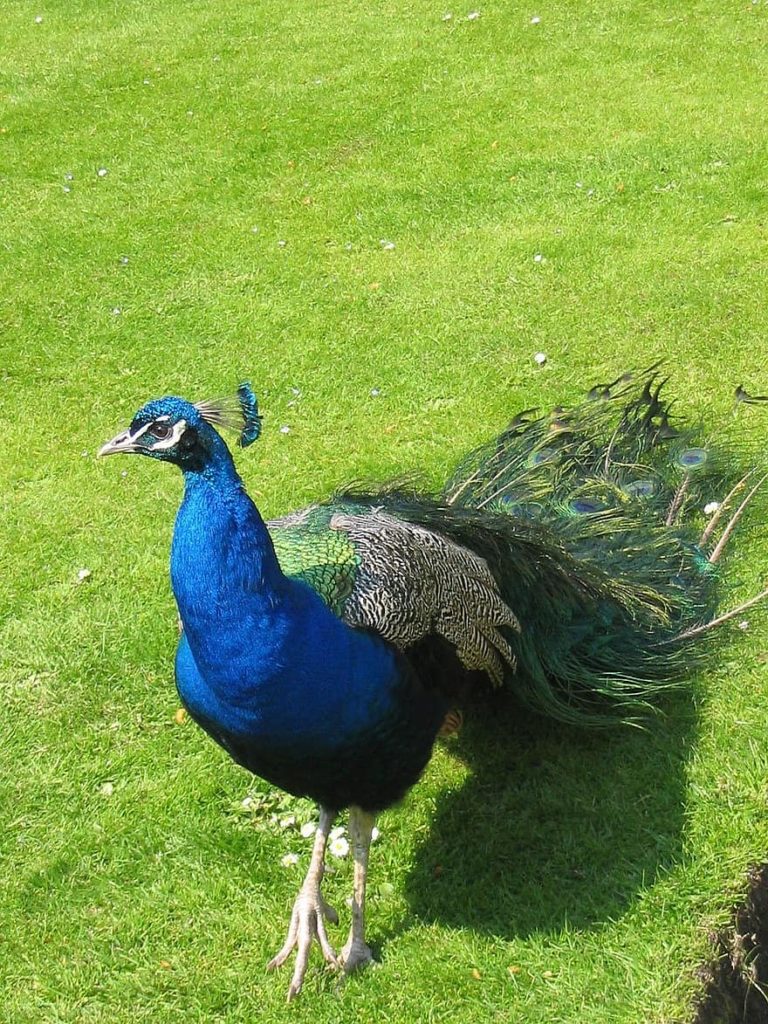
But despite this, the human side of Dr. Kalam was very strong. Once during the winter he was walking in the garden of Rashtrapati Bhavan. He noticed that there is no heating system in the security guard’s cabin and the shiver of security guards is missing in the harsh winter. He immediately called the officials concerned and made arrangements to install a heater in the guard’s cabin during the winter and a fan during the summer.
SM Khan narrated another anecdote, ‘Once while walking in the Mughal Gardens, he saw that a peacock could not open its mouth. He immediately called the Veterinary Doctor Sudhir Kumar of Rashtrapati Bhavan and asked him to do a health check up of the peacock. On examination, it was found that Peacock has a tumor in his mouth, due to which he is neither able to open nor close his mouth. He was not able to eat anything and was in a lot of trouble. At the behest of Kalam, Dr. Kumar underwent emergency surgery on the peacock and removed his tumor. The peacock was kept in the ICU for a few days and after being completely recovered was left in the Mughal Gardens.
Kalam meets Sam Manekshaw
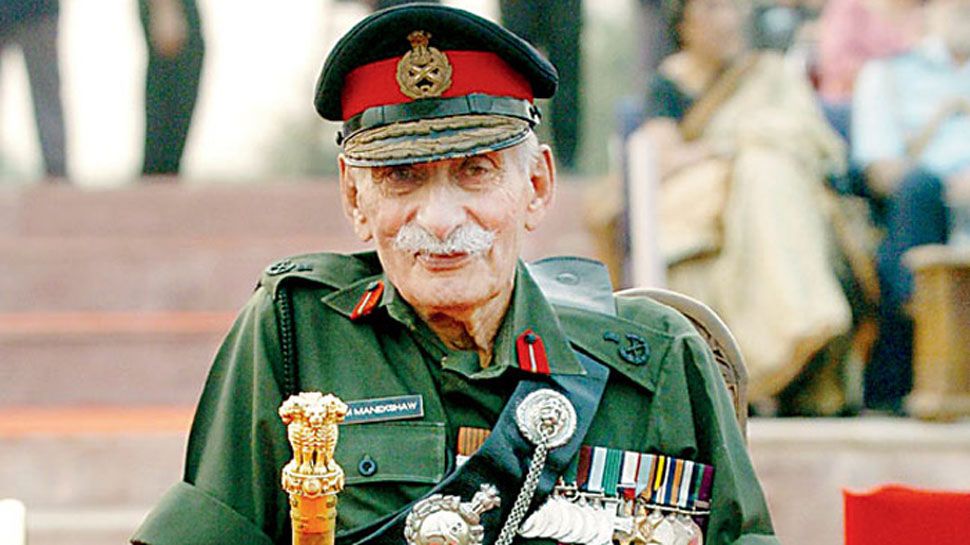
When Kalam’s tenure came to an end, he expressed his desire to meet Sam Manek Shaw, the field master of the 1971 war.
He also went to Ooty to meet him in February 2007. After meeting him, Kalam came to know that Manek Shaw has been given the title of field marshal but the perks and facilities provided with him have not been given.
After returning to Delhi, he decided to do something in this direction. Along with Field Marshal Manek Shaw, Marshal Arjan Singh was also paid all the outstanding allowances from the day he was given this post.






























